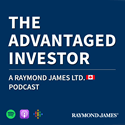Fixed Income Update

Head Fixed Income Trader Harvey Libby joins host the podcast to discuss what’s going on in fixed income markets, including:
- Recent federal budget and the new capital gains taxes
- Recap of where we are/where we have been
- Rates and inflation
- Opportunities
- The importance of after-tax yields.
Follow the podcast on LinkedIn: The Advantaged Investor
Please subscribe, rate and review. Reach out at advantagedinvestorpod@raymondjames.ca
This podcast was recorded before the release of the 2024 federal budget and does not cover any details within it.
Transcript
Chris Cooksey: Welcome to the Advantaged Investor, a Raymond James Limited podcast, a podcast that provides perspective for Canadian investors who want to remain knowledgeable, informed, and focused on long term success. We are recording this on April 23, 2024. I'm Chris Cooksey from the Raymond James Corporate Communications and Marketing Department, and today our old friend, head fixed income trader, Harvey Libby returns to the podcast. As always, Harvey is here to discuss fixed income markets. Welcome back to the Advantaged Investor, Harvey thanks for taking the time today. I hope you are doing fantastic.
Harvey Libby: Thanks, Chris. Yeah, I am for sure.
Chris Cooksey: Now, you know this better than I, but I even know it fixed income is an important part of many portfolios for investors in Canada for many different reasons so this is a very important and interesting topic as always, so if you're ready, I'd like to jump right in with this question with the recent federal budget and the new capital gains tax, I'd like to get your opinion on how that affects fixed income markets and investors.
Harvey Libby: Well the crux of it all was just the capital gains threshold changed. It really doesn't affect the normal client. Basically, what they said was anything over any capital gains that are over $250,000 would be taxed at a higher rate than what it's being taxed at right now. So right now, capital gains get taxed at 50 percent of your tax rate. Going forward, at $250,000 threshold, they're going to be taxed at five eights of your tax rate, so a little bit of a higher rate. But that said, $250,000 of capital gains a year, unless you have a house you're selling, something big in your life that has happened, like a cottage or something like that. It's not for the normal client in my mind, like a yearly tax on or a yearly capital gain of $250,000. is a big number. You figure it's basically $5 million in invested assets at a 5% yield over a year. That is $250,000, if it was all in in capital gains. And that's a big number, so I don't think most people are going to be affected by it. I know personally I won't, unless I have an extenuating event happen in my life where somebody passed away and you get a windfall of money and you might have to know you're going to have one year of paying this increased tax. But other than that, I don't think it's really going to affect the average investor.
Chris Cooksey: Okay. Now let's just move on to our usual recap, where we've been and where we're going and take it from there.
Harvey Libby: Well, last time I was on was January 17, and basically most economists on the street thought that, I think they changed their view, from five to six rate cuts in the U.S. this year. And at that point, I think in January, we were more talking three to four. And I believe I was saying three would be probably close to reality. Well, now they're even cutting that back. And most people think that, you know, we're looking at between two and three rate cuts in the U.S. for this year. Some are actually even predicting that we're not going to have any at all. So stuff has changed, stuff has you know, dramatically changed over the last three months. Now, our bond market really hasn't changed that much. We've increased by in yield by about 30 basis points since we last talked. And that is just the indecision going on with rates and what's going on in the market. If you take a look in Canada, CPI or the inflation numbers this month, they came out, and year over year, we're at 2. 9%. That's slightly higher our last recorded number, which was 2.8%. So it went up slightly, but it was still inline. It was inline with estimates and still in Canada, I think there will still be 2 to 3 rate cuts in Canada this year. I think they will start, and we seem to have we seem to have inflation more in line than the United States.
The U.S., their CPI is a lot higher. It's 3.5% year over year this month. And that was from 3.2% the month previous. So it's gone up by 0. 3 over the month. The survey was actually a little bit lower as well. So that doesn't help it any as well, because the economists are thinking, if they're thinking CPI is going up and it goes up even further than that hurts the bond market. So I'm thinking U.S. probably won't have as won't have as many rate cuts as Canada will this year. I think Canada will start in June. Right now, economists are, 62% in favour of a cut in June and two to three by the end of the year. In the U.S. they're looking at it's only about 47 percent chance of there being the first cut in the U.S. by September. So it's only like a 50/50 draw there and maybe two cuts by the year end.
Chris Cooksey: Okay.
Harvey Libby: I we're talking, probably the next question you're going to ask Chris is. Where should we be invested?
Chris Cooksey: Yes, it is now, Harvey.
Harvey Libby: Well, I think that if you need money in the short term, the short end is very attractive in this market. It really is getting over 5% for six months to a year out. Very attractive. You know, one-year GICs right now, are over 5%, one-year corporate product is over 5%. It really looks attractive. But I think what you have to remember is these rates, the economists are still saying rates are going to go lower. It's just taking a lot more time than anyone thought, but when they do start going lower, you're not going to have the chance to reload, you know? I think, go back to what we always say, what you always say to me, what's the safest way is to be in a ladder. So do your one-to-five-year ladder and worry about five years from now, or like every year, you know, change up, but you've got a five-year ladder in place and you're taking advantage of the higher rates going forward right now. would probably stick to a one-to-five-year ladder, keep it rolling every year and hopefully we get a normalized yield curve, and you get to reload or, pick product a year, two years, three years from now, which is higher in the rung than what you'd already done. I think that is the safest way to be if you want to be just in an area and you think. You know, just in one term I think five-to-seven-year term is the right area to be in. But a one-to-five-year ladder or one-to-seven-year ladder, one-to-nine-year ladder, one-to-10-year ladder, you can't go wrong. You're right, it's the safest way to be in the market.
Chris Cooksey: Now, last time you were here, we talked about how rates were peaking or have peaked. And as you mentioned, they may not have come down as quickly. We probably talked about having maybe a cut back then potentially and that's been moved out a lot, but there's that old adage, the central bank will stay higher for longer and shorter for longer than what the markets anticipate, because obviously they’re a forward looking sort of thing. Theoretically that still stands, we're near the peak. It looks like, whether we've gotten an extra few months to take advantage, we're still in that situation.
Harvey Libby: Absolutely agreed. That's exactly it. The way I look at it is, we're getting a few more months to take advantage of it. So, get your eggs in the basket and take advantage of exactly what you want to have out there in the fixed income space, and hopefully the market starts doing what it's supposed to do. And by June, we get a rate cut in Canada and people's mortgages are a lot more affordable for people to actually pay down their house.
Chris Cooksey: You mentioned eggs in a basket. Talk to your Raymond James advisor to find out how many of those eggs go in what basket and in what sort of mixture of eggs to make sure you are properly diversified for your needs.
Harvey Libby: Well, that's exactly it. When rates were at 1%, it was hard to convince people that yes, you still do need fixed income in your basket.
Chris Cooksey: You still need a basket.
Harvey Libby: You just don't have a basket of equities. You need a basket of everything. And at 5%, it's definitely compelling to put some fixed income into your portfolio and it makes total sense. So why not put it in now, extend term a little bit and make sure it's going to be in your basket for a few years.
Chris Cooksey: Something that's just occurred to me, and this is more of a general question. How often does the Bank of Canada meet and come up with these rate decisions? Is it, is it a monthly thing? Or is it a few times a year type thing.
Harvey Libby: It's a few times a year right now. It is quarterly. I just want to make sure I'm not saying a lie.
Chris Cooksey: Much appreciated. And if our podcast had more budget, we would have a musical interlude right now. But so this is a very small operation, so we can't afford those fees on the music.
Harvey Libby: yeah, that's very true. Well, you know what? They have set meeting dates and it's sort of every like six weeks-ish. They're set a year out. The next one we have is June and then July, then September, then October, then December.
Chris Cooksey: Probably about 10 times a year, I would guess. And then, it's important for markets to know when they meet, because obviously people are making decisions ahead of time and placing where they think it's going on the old board ahead of time. So, it's important that that schedule's out there. I just, I never realized how often they meet.
Harvey Libby: I didn't think it was as much as every six weeks. I thought it was closer to two months. So, well, it's pretty close.
Chris Cooksey: All right. Any final thoughts for us today, Harvey?
Harvey Libby: I think the other thing is, like I touched a little bit on the after tax and how it has increased by a lot. Sorry, it hasn't increased by a lot for the normal person. But it has increased if you hit that $250,000 threshold. I still think there are still opportunities, in especially short term bonds like one to five years for after tax yields. After tax yields are still beating GIC rates, in corporate you know, high quality bonds. So it is still something to look at and talk with your financial advisor about, because it definitely does make sense for you know, 90 percent of the clients, that's for sure.
Chris Cooksey: Well, I just want to thank you for your time, Harvey, always it's a pleasure to speak with you and we will talk again in a few weeks, probably somewhere around mid-June, after we hear from the Bank of Canada.
Harvey Libby: That sounds good. Thank you very much.
Chris Cooksey: Reach out to us at AdvantagedInvestorPod@RaymondJames.ca. Subscribe to The Advantaged Investor on Apple, Spotify, or wherever you get your podcasts. Please contact your advisor with any questions you have. On behalf of Raymond James and The Advantaged Investor, thank you for taking the time to listen today. Until next time, stay well.
This podcast is for informational purposes only. Statistics and factual data and other information are from sources Raymond James Limited believes to be reliable, but their accuracy cannot be guaranteed. Information is furnished on the basis and understanding that Raymond James Limited is to be under no liability whatsoever in respect thereof. It is provided as a general source of information and should not be construed as an offer or solicitation for the sale or purchase of any product and should not be considered tax advice. Raymond James advisors are not tax advisors and we recommend that clients seek independent advice from a professional advisor on tax related matters. Securities related products and services are offered through Raymond James Limited. Member of the Canadian Investor Protection Fund. Insurance products and services are offered through Raymond James Financial Planning Ltd, which is not a member of Canadian Investor Protection Fund.




